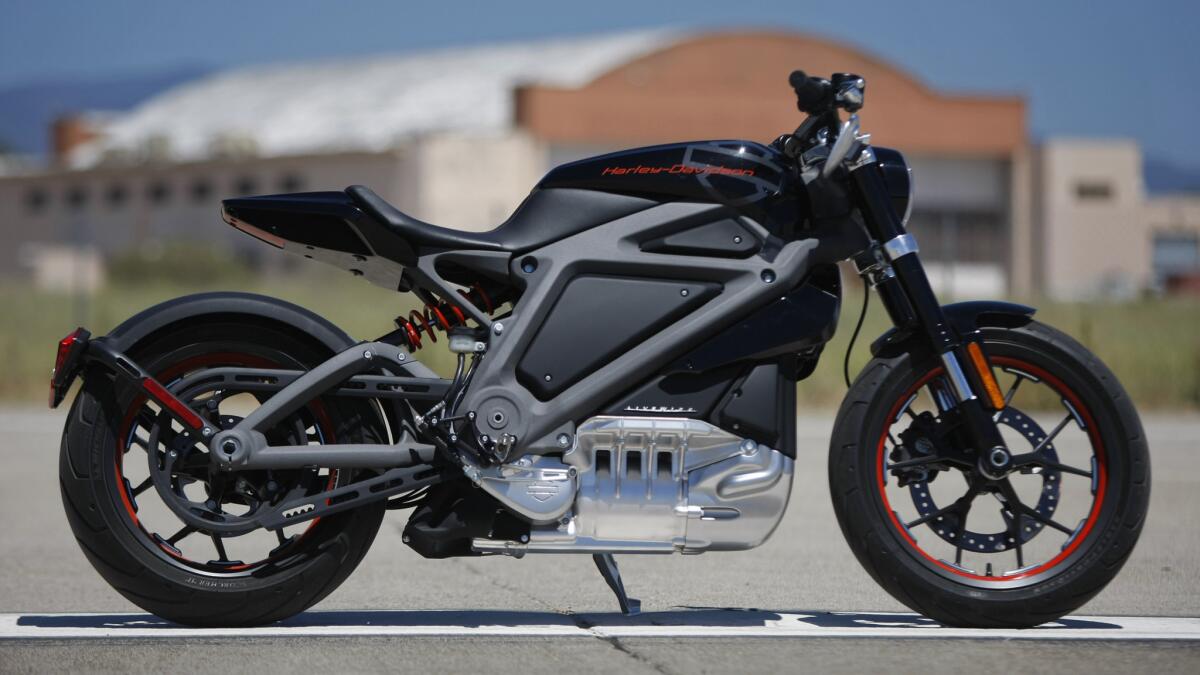Harley halts output of LiveWire electric motorcycle, which is key to its revival

- Share via
Harley-Davidson Inc. has halted production of LiveWire, the debut electric bike it’s counting on to attract new riders.
The motorcycle maker recently discovered an issue during final quality checks, according to an emailed statement that doesn’t provide details. Harley said it stopped production and deliveries as it conducts additional testing and analysis.
Chief Executive Matt Levatich, who’s presided over 10 consecutive quarters of declining U.S. retail sales, has positioned LiveWire as key to building a new generation of customers. While it’s easier to operate — there’s no clutch or gears to figure out, just a twist-and-go throttle — analysts have questioned whether its $29,799 price tag will attract the younger riders the company seeks.
Harley-Davidson Inc. on Monday unveiled a plan to expand motorcycle ridership and increase global sales with bikes that will be hardly recognizable as Harleys – among them electric scooters and small bikes destined for foreign markets.
“We made a deliberate decision to launch a halo product to demonstrate what’s possible in electric — a no-excuses electric Harley-Davidson — and we feel very good that we’ve done that,” Levatich said during an earnings call in July.
LiveWire deliveries were initially supposed to begin in August, but the company said during an investor day on Sept. 24 that it was holding back the bikes to make sure they were perfect, according to James Hardiman, an analyst at Wedbush Securities. Pre-orders started in January.
The Wall Street Journal reported earlier Monday that Harley told some of its dealers last week it was suspending output as it conducted tests on the bike’s charging mechanism, citing a memo from Chief Operating Officer Michelle Kumbier. The company asked customers and dealers to only use a professional type of charger available at dealerships rather than home electrical outlets, the Journal said.
More to Read
Inside the business of entertainment
The Wide Shot brings you news, analysis and insights on everything from streaming wars to production — and what it all means for the future.
You may occasionally receive promotional content from the Los Angeles Times.








